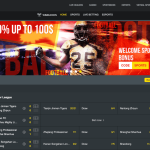In recent years, the advent of remote work has transformed the traditional dynamics of various industries, including construction. Building project managers, once accustomed to on-site supervision and face-to-face interactions, are now navigating a landscape where remote work is becoming increasingly prevalent. This shift brings both challenges and opportunities, reshaping the role of project managers and demanding innovative approaches to leadership and collaboration. In this article, we delve into the impact of remote work on building project manager, exploring how they adapt, thrive, and lead in this evolving environment.
Adapting to Virtual Collaboration
Remote work has necessitated a fundamental shift in the way building project managers collaborate with their teams and stakeholders. With the physical distance between team members, virtual communication tools have become indispensable. Project managers must leverage technologies such as video conferencing, project management software, and virtual whiteboards to facilitate seamless communication and information sharing. Effective utilization of these tools fosters transparency, enhances productivity, and ensures that project objectives remain on track despite the geographical dispersion of team members.
Overcoming Challenges in Remote Leadership
While remote work offers flexibility and autonomy, it also presents unique challenges for building project managers. One significant hurdle is maintaining team cohesion and morale in the absence of face-to-face interaction. Establishing a strong sense of camaraderie and trust among team members becomes paramount. Project managers must proactively foster a supportive work culture, encourage regular virtual check-ins, and organize team-building activities to strengthen relationships and mitigate feelings of isolation.
Additionally, remote leadership requires a heightened emphasis on clarity and accountability. Building project managers must clearly define roles, responsibilities, and expectations to avoid misunderstandings and ensure alignment across the team. Regular progress updates and performance evaluations help track individual contributions and address any issues promptly, fostering a culture of accountability and excellence.
Harnessing the Benefits of Flexibility
Despite its challenges, remote work offers significant benefits for building project managers and their teams. The flexibility to work from anywhere enables project managers to access top talent regardless of geographical constraints, thereby expanding the pool of potential collaborators and enhancing diversity within teams. Moreover, remote work promotes a healthier work-life balance, reducing burnout and improving overall job satisfaction among team members.
Furthermore, the digital transformation spurred by remote work has paved the way for innovation in project management practices. Building project managers can leverage data analytics, artificial intelligence, and other emerging technologies to streamline processes, optimize resource allocation, and improve decision-making. By embracing technological advancements, project managers can drive efficiency, minimize risks, and deliver projects more effectively in the remote work era.
Conclusion
In conclusion, the rise of remote work has profoundly influenced the role of building project managers, necessitating adaptation, innovation, and resilience. By embracing virtual collaboration tools, overcoming leadership challenges, and harnessing the benefits of flexibility, project managers can navigate this new landscape with confidence and success. As the construction industry continues to evolve, building project managers must remain agile and proactive, continuously refining their strategies and approaches to meet the demands of remote work and drive project excellence.








